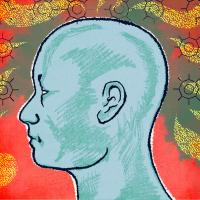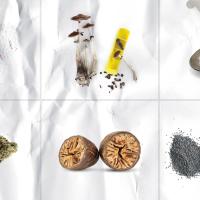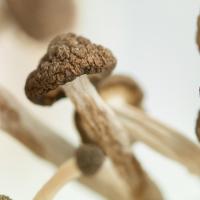America’s war on drugs has been raging on for nearly a half century and yet the U.S. seems no closer to finding its end. Quite the contrary, it seems as if efforts to enforce prohibition have had a reverse effect. Illegal drugs in the U.S. are now as accessible and used as ever.
Drug-related deaths and expenses for prosecuting drug-related offenses continue to climb. For these reasons and more, many are advocating to replace fear-mongering propaganda and ultra-punitive measures with more practical drug education.
Who Started the War on Drugs?
On July 17, 1971 President Richard Nixon declared drug abuse “America’s public enemy number one” and began what turned into years of ineffective policy. The war on drugs would continue on for decades, perpetuating a culture of miseducation and fear.
By 2015, 1.3 million drug possession arrests were made per year, tripling the amount of arrests made in the 1980s. Human Rights Watch recently reported that someone is arrested every 25 seconds in America for a drug-related offense.
Since the war on drugs was declared, stricter sentencing laws and severe enforcement practices were implemented for even the most minor of drug offenses. These disproportionately affected minority populations and those of a lower socioeconomic status, further separating an already divided social structure.
Black Americans are almost six times more likely than white Americans to be arrested and incarcerated for a drug-related offense. People of color now make up almost 80% of those behind bars due to drug crimes.
Human and Economic Costs of the War
Incarceration for these arrests has had little to no impact on preventing drug use, but instead, it’s been linked to an increase in mortality rate for those who serve time. Drug use statistics show that within two weeks of being released, offenders are 13 times more likely to die than the general population, with the leading cause being overdose.
To date, the U.S. government has spent more than $1 trillion on the war on drugs and it costs taxpayers over $51 billion annually. America has a drug problem indeed, but a system that focuses on punishment has proven itself to be ineffective.
As Americans struggle to find solutions to the drug problem, as well as the problems the war itself has created, many point first to proper drug education.
The Case for Improved Drug Education
When a war is in progress, propaganda spreads, myths flow, and the truth gets censored. The war on drugs has focused heavily on fear tactics and abstinence. The fear that drug education will encourage drug use has placed the government’s emphasis on scaring individuals out of using.
However, when people are denied facts on how to keep themselves safe if they are going to use drugs, it only worsens the issue. Dominic Milton Trott, author of The Drug Users Bible, is one who believes that instead of trying to scare people out of using drugs, we should educate them on how to use them as safely as possible.
To research for his book, Trott self-administered 157 different psychoactive drugs including methamphetamine, heroin, oxycodone, and ketamine, and documented information on each experience. Trott saw a dangerous lack of guidance on how to safely use drugs and he believes that it all started with President Nixon.
“The problem is that people are dying of ignorance,” explains Trott. “Harm reduction and safety are of paramount importance, so I was driven to produce the book largely on the basis that it would save lives.”
Trott’s efforts, however, have been stymied by censorship. Content guidelines and community standards exist for good reason on social media platforms, but they’ve also caused Trott’s information to continually get flagged as drug paraphernalia.
Instagram and Facebook have both banned his accounts and Twitter has disallowed him from advertising his literature and findings on their site. Censorship that is meant to protect people is potentially doing the opposite by preventing individuals like Trott from sharing life-saving information.
Overcoming Ignorance
The ignorance created by the negative stigma associated with drugs is both dangerous and limiting. It’s one of the main reasons why the advancement of research into the positive uses of these drugs has been hindered for so many years.
Cannabis, for example, is still listed by the DEA as a Schedule 1 substance that has no accepted medical use. Yet many in both the medical and scientific communities have attested to its medicinal benefits and it’s been decriminalized in 27 U.S. states.
The change in marijuana’s legal status has opened the door to uncovering alternative treatments for many different conditions, such as autism. Similar strides are now being taken for drugs like ketamine and psilocybin at Johns Hopkins University.
However, if public policy and sentiment continue to propagate against drugs, such positive findings on medicinal uses will only be further delayed. Perhaps society needs to realize that drugs themselves are not the enemy.
If the war on drugs has taught us anything, it’s that fear tactics and punitive measures will not solve our problems. Instead, an increase in education could help the general public to better understand drugs, their dangers, and their potential benefits.
For more interesting news about the people and ideas that are changing our world, subscribe to Freethink.


